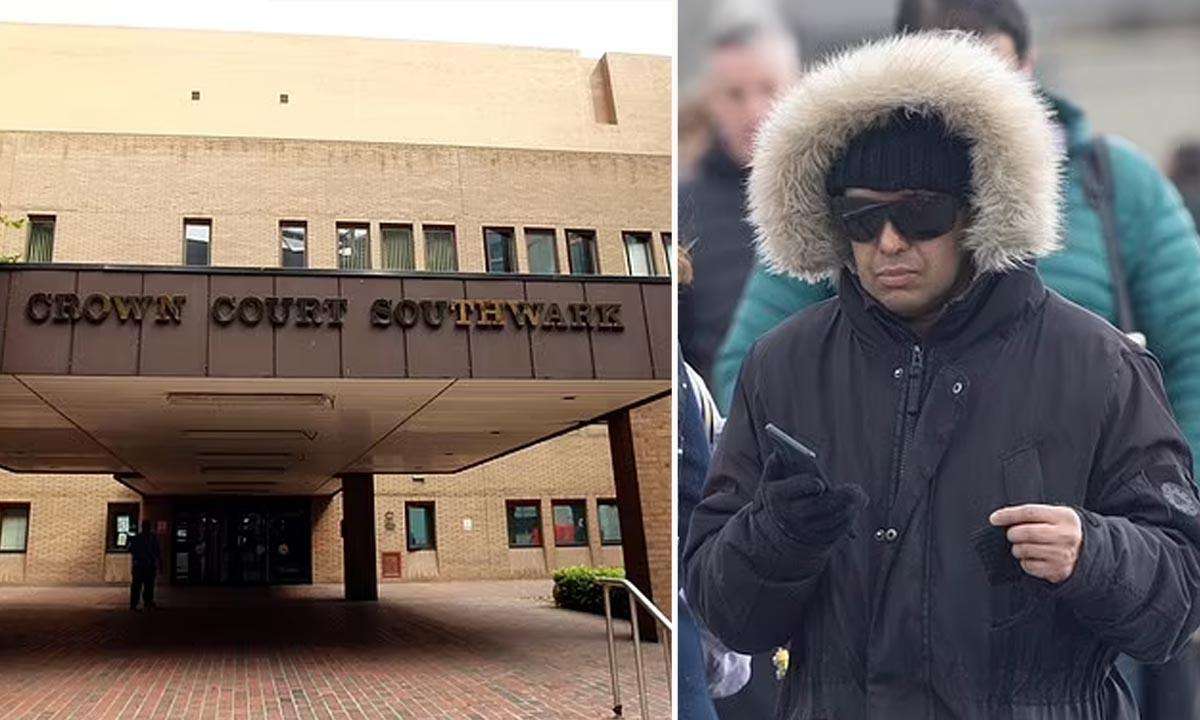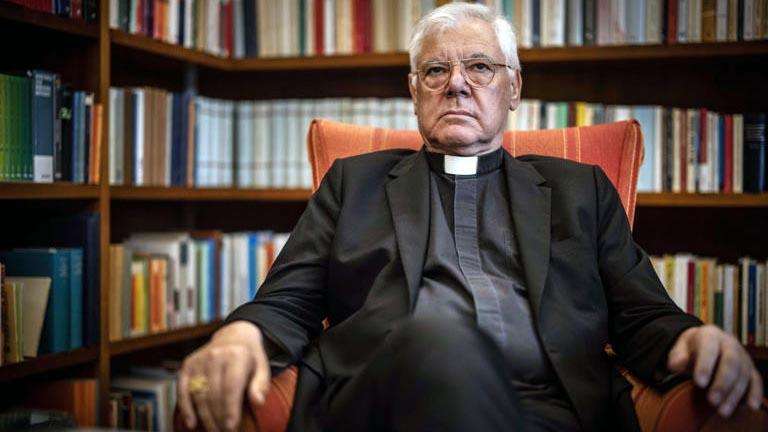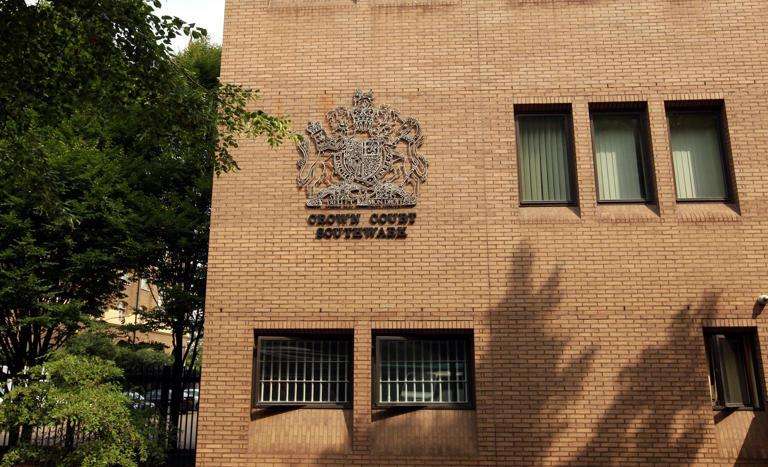Victims of an extensive £18 million fraudulent lettings scheme were left homeless, lost their jobs, and had their education disrupted after being deceived in a “systematic and thoroughly dishonest” scam, a court has heard.
Hundreds of individuals fell prey to the fraud, enticed by advertisements featuring fake property images, coerced into signing contracts and paying deposits before viewing the homes, and later subjected to illegal and forceful eviction threats.
Mohammed Moynul Haque was identified as the mastermind behind the scheme, overseeing Citiside Properties Ltd until it was shut down following numerous complaints. He then established another agency, Flintons, to continue the deception and was also linked to a third rogue agency, Mayfields.
Prosecutors from Tower Hamlets council stated that students and newcomers to the UK, particularly London, were specifically targeted, as they were less familiar with standard rental procedures.
Richard Heller, representing the prosecution, told Southwark Crown Court that the fraudulent operation, which ran from 2016 to 2021, generated £18 million by posting at least 18,000 misleading advertisements on Spareroom.co.uk to attract victims.
He described the severe impact on those affected, who not only lost money and valuable possessions but also endured homelessness, job loss, and emotional distress.
“For many, this was their first experience renting in London,” he said. “Some were placed in uninhabitable conditions and left without a home.
“They were forced to spend money on last-minute hotel stays, find alternative housing, or rely on friends for a place to sleep.”
Mr. Heller stated that those responsible for the fraud “systematically exploited vulnerable individuals, subjecting them to dishonesty at every stage of the rental process.” They used images “taken from other properties” to create deceptive online listings and fabricated numerous lies to separate victims from their money.
Victims discovered that the true locations of the advertised properties were withheld, were misled into believing they could not visit the homes before being pressured to sign contracts and pay deposits, and in some cases, were stripped of their legal rights by being issued ‘licences to occupy’ instead of assured shorthold tenancy agreements.
“These were acts of large-scale deception, affecting hundreds upon hundreds of people,” Mr. Heller told the court.
One of the victims, Gibril Saine, shared that he was forced to abandon a college course after falling victim to the scam and had to rely on his overdraft to afford a bed and breakfast.
“Their actions left me homeless, deceived, and financially drained, forcing me onto the cold streets,” he said. “I lost my place on a college course because I had no stable place to live. A whole year wasted, having to start over from scratch. Such a loss is beyond monetary value.”
Fashion industry worker Julius Agyei returned home one day to find his bedroom locks changed and his belongings missing.
“I was collaborating on projects with emerging brands, but since I couldn’t shoot the garments, those relationships were ruined,” he said.
“They’ve taken a lot from me, also things that mean so much to me. I lost my best friend in 2016 - there was a picture of me and her framed. It was a gift I received on my 25th birthday. It meant the world to me and it has now been taken.”
Nicolae Cristinel-Stan also fell victim to an unlawful eviction, and recalls the “devastating” day he arrived home to find he had been turfed out.
“We had no prior warning, and we arrived to find our belongings gone and our room emptied”, he said. “This was an incredibly traumatic experience, as we were left feeling violated and homeless.
“We had no idea where to turn for help, and the situation was made worse by the callousness of those involved.”
He added: “I was pushed around and verbally harassed by the individuals from the agency, I was treated with disrespect and cruelty, and I could not fathom that such actions were allowed to happen.
“This ordeal instilled a deep sense of insecurity and frustration that still affects me today,” one victim said.
Adrian-Cristian Nicolescu, a PhD student at University College London, revealed that after falling victim to the scam, he had to borrow money from a friend and his parents in Romania. “I was forced to use all my savings and cut down on expenses, even sacrificing basic necessities,” he said. “I couldn’t afford a plane ticket home, which meant I had to spend Christmas alone in London.
“They treated me like a stray dog.”
Christina Clarissa Allan told the court that, while struggling financially as a student, she used part of her mother’s inheritance—left after her grandmother’s passing—to pay the deposit.
“The guilt I feel is immeasurable,” she said. “I lost £1,036.66 after paying a deposit and some rent in advance.”
Ms. Allan recalled feeling “on top of the world” when she began her new life in London, but her experience with Flintons, which ultimately led to losing her home, was devastating.
“The ordeal completely discouraged me from living in London, taking away both my life’s ambition and my dreams,” she said.
Yan Liu had just submitted her PhD when she was defrauded. She described being misled by Egea while attempting to recover her deposit.
“I repeatedly placed my trust in people who had no hesitation in lying to me and exploiting me financially,” she said. “I was undoubtedly seen as an easy target—trusting and vulnerable.
“I put myself under immense financial pressure, exhausting all my savings before I even started working in September 2018. It’s difficult to measure the emotional toll of falling victim to fraud. While I consider myself resilient and believe in justice, it’s unsettling to know that such scams can openly operate for years without being stopped.”
Emma Welch found herself trapped in a property infested with ants and mice, which ultimately led to her losing her job, accumulating debt, and having to seek temporary housing.
Joseph Cutts described his experience with Flintons as “hell,” detailing how the agency repeatedly harassed him with unannounced visits, allowed strangers access to his room by sharing his entry code, and treated him with hostility both in person and over the phone.
“There were times I considered suicide because of the pressure they put on me—the accusations, the demands for money,” he admitted.
“They constantly deceived me, making me distrustful of any business dealings in the future.”
Prosecutors presented victim impact statements from 29 individuals, detailing the emotional and psychological toll of the fraud. However, Mr. Heller emphasized that the true number of victims likely reached the hundreds.
Mohammed Moynul Haque, 46, was convicted after a six-month trial on four counts of fraudulent trading and two violations of the Consumer Protection from Unfair Trading Regulations 2008. Mr. Heller described him as holding “the highest position in the operation” and being actively involved in purchasing fake positive reviews for Flintons and orchestrating unlawful evictions.
Fatima Begum, Haque’s then-wife, was found guilty of fraudulent trading. She was listed as the sole director of Citiside and worked as the office manager, according to the court.
Gonzalo Gomez Egea, 42, who served as general manager for both Citiside and Flintons, was convicted on two counts of fraudulent trading.
The court heard that Egea was involved in deceiving Spareroom.co.uk when complaints about the scam began pouring in. He also drafted a document titled Surviving SpareRoom, which was distributed to new agents to create the illusion that steps were being taken to eliminate dishonest practices.
It was also revealed in court that Egea is a Spanish national and had concealed the nature of the case from his family until after he was found guilty.
Razaur Rahman Oli was convicted of fraudulent trading and a violation of the Consumer Protection from Unfair Trading Regulations 2008 for his role at Barrons London Ltd, a lettings agency linked to the same fraudulent operation.
Despite the legal case, the court heard that Barrons London Ltd is still operating. Oli has reportedly suffered a heart attack and a stroke since the proceedings began.
A fifth defendant, Nozir Ahmed, 55, was convicted along with his company, Roomshare Ltd—operating as Mayfields—on two counts under the Consumer Protection from Unfair Trading Regulations 2008.
The investigation that ultimately led to these prosecutions began after complaints about Citiside surfaced in 2017. Flintons was established the following year and soon became the subject of further complaints to Action Fraud, Citizens Advice, Spareroom.co.uk, and the Property Ombudsman.
In August 2019, Tower Hamlets council raided the offices, seizing computers that provided crucial evidence for the case. Flintons ceased operations in February 2020, but the scam was found to be linked to Barrons London Ltd and Mayfields, which remained in business.
Spareroom acknowledged that the fraud had significantly damaged customer trust in its platform. Matt Hutchinson, the company's communications director, emphasized the importance of the convictions in demonstrating that action was taken.
“At SpareRoom, we dedicate substantial resources to staff and systems designed to combat fraud and protect users from rogue letting agents and landlords. These advertisers were banned from our platform for violating our terms and conditions, and we were pleased to collaborate closely with Trading Standards to ensure their prosecution,” he said.
“Moving home is already a stressful process, especially for young people and those new to the UK. Criminals like these don’t just steal money—they strip people of their confidence and their opportunity to start a new life.”
Judge Tony Baumgartner is expected to deliver sentencing on Tuesday.
Prosecutors have urged him to assess the harm caused by the fraud based on the full £18 million turnover of the involved companies. However, defence lawyers have argued that the assessment should be limited to the estimated £70,000 in losses from the victims who provided evidence during the trial.








.svg)


